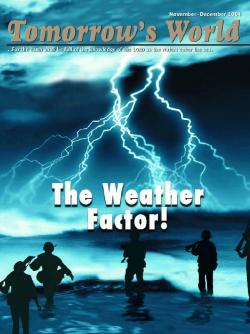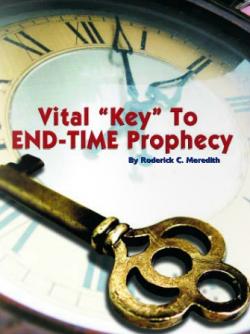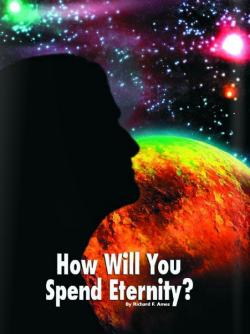Is Christmas Christian?
To billions around the world, no time of the year is more eagerly anticipated than the Christmas season. "'Tis the season to be jolly," is how the song goes. Of course, for many people, Christmas can be a depressing season, emphasizing their loneliness and isolation from family.
The Christmas season is the time of year with the greatest number of parties and celebrations, but it is also the time of year with the highest suicide rate.
In recent decades, many have sought to "secularize" Christmas, removing from it all references to Jesus Christ and His birth. In the United States, legal challenges have successfully removed manger scenes from courthouse squares, and have created a climate in which many school choirs avoid singing Christmas carols with religious themes. Yet, as much as references to Jesus Christ and His birth have been downplayed, Santa Claus has become an unavoidable part of the season.
Millions of evangelicals have been deeply troubled by these trends. Feeling that they are in a battle with hostile secular forces that seek to eliminate everything that points to Christ and the Bible, they want to "reclaim" Christmas from the secularists.
Millions more are simply turned off or offended by the crass commercialism associated with the Christmas season. Christmas has become a sales gimmick in the modern-day U.S.—and in Canada. Christmas-related sales are the key component of yearly profit margins for most retail sales operations. That is why, by the beginning of November, familiar Christmas music blares from the public address systems of malls across North America. Retailers are trying to get the public "in the mood" to begin Christmas shopping early.
Decrying the commercial exploitation of the holiday season—and deeply bothered by efforts to remove all reference to God and the Bible from public life—many well-meaning religious people are demanding that Christ be put back into Christmas. The secularists, they claim, have hijacked a sacred Christian holiday for their own ends.
Western society is increasingly described as "post-Christian," and secular elites have been dubbed "the new pagans." In such an environment, should Christians join together to somehow reclaim Christmas? In a society that is more and more disconnected from God, can this disconnect be healed by encouraging more references to Jesus Christ during the Christmas season?
What approach does God want His people to take regarding Christmas? Is Jesus Christ, in fact, "the reason for the season?" You may be shocked to learn that Christmas is actually not Christian in its origins! For centuries before Jesus Christ's birth in Bethlehem, December 25 was associated with decorating evergreen trees, exchanging gifts and carousing at parties and celebrations.
How did Christmas become the chief "Christian" holiday? Is it—and can it be—Christian at all? You can search the New Testament from start to finish, and you will never find a reference to any sort of Christmas party. Moreover, you will never read of a religious service held to commemorate Jesus' birth.
But if the first Christians did not celebrate Christmas, then why did they not do so? When and how did this celebration achieve such prominence on the calendar of professing-Christian churches?
Where Did Christmas Originate?
Did you know that there were Christmas celebrations in Rome long before there were any in Jerusalem? How could a holiday that most associate with Jesus Christ of Nazareth have its origins in Babylon and Egypt many centuries before His birth? And how could such a holiday come to be so widely accepted as Christian?
To help us understand, we can look at the word "Christmas" itself. It means "mass of Christ," and has its origins in the practices of the Roman Catholic Church. Yet even Catholic sources acknowledge that Christmas was not among the earliest festivals of the church, and that it does not have apostolic origins. Notice: "Christmas (i.e. the Mass of Christ), in the Christian Church, the festival of the nativity of Jesus Christ… As late as 245 Origen, in his eighth homily on Leviticus, repudiates as sinful the very idea of keeping the birthday of Christ 'as if he were a king Pharaoh.' The first certain mention of Dec. 25 is in a Latin chronographer of A.D. 354, first published entire by Mommsen.… [December 25 was] a Mithraic feast and is by the chronographer above referred to, but in another part of his compilation, termed natalis invicti solis, or birthday of the unconquered Sun" (Encyclopaedia Britannica, 11th ed., article: "Christmas").
The New Testament makes certain key dates plain; for example, it tells us that Jesus Christ died on the day of the Passover. Yet Scripture does not mention the date of Jesus' birth, and does not recount any Christians celebrating His birthday. In fact, the Bible associates the celebration of birthdays with the practices of heathen kings, and never mentions such celebrations in a positive light. This is why Origen—one of the early "Fathers" of the Roman Church, writing in the third century—was shocked at the very idea of celebrating the Savior's birthday.
When the early Roman Church established a festival to celebrate the Messiah's birth, it timed that festival to coincide with an existing pagan festival celebrating the birthday of the sun god. By co-opting existing pagan rituals and customs, the church sought to win the pagan masses to its idea of Christianity, allowing converts to continue to practice familiar customs—just calling them by different names.
The "mother and child" motif in religion was well known in the ancient pagan world. The ancient Babylonians and Egyptians worshipped a "Madonna" whom they revered as the "Queen of Heaven"—a title that the Roman Church would apply centuries later to Mary, the mother of Jesus. In Egypt, Isis was the mother and Horus was the child. In Mesopotamia it was Ishtar and Tammuz.
These stories trace back to Semiramis and Nimrod, in the early years after Noah's flood. Nimrod was a mighty hunter (see Genesis 10–11), and led mankind's rebellion against God at the Tower of Babel. Nimrod was one of the chief architects of the human civilization that began at Babylon, and that spread around the world as people migrated to repopulate the earth after the great flood.
The real origin of Christmas goes back to these ancient times, before it was carried forward by an apostate "Christian" church. The winter solstice—the day with the shortest daylight in the northern hemisphere—was anciently associated with the birth of the sun god. It was a time of festivity. Called Saturnalia by the Romans, this holiday was a time very reminiscent of our modern Christmas, when gifts were given, hostilities ceased, civic functions were suspended and parties were held. "It was usual for friends to make presents to one another; all animosity ceased, no criminals were executed, schools were shut, war was never declared, but all was mirth, riot, and debauchery" (Lempriere's Classical Dictionary, article: "Saturnalia").
Jesus Was Not Born in Winter
"Christmas" festivities are not just "pre-Christian"—dating to pagan worship of the sun god—they in fact have no connection to the date of birth of the true Messiah, Jesus Christ. How do we know this? While the Bible does not explicitly tell us the exact day of Jesus' birth, it gives us clear evidence of the approximate time. From Scripture, it becomes obvious that winter is the one season in which Jesus could not have been born.
Luke tells us that on the night of Jesus' birth, the shepherds were still keeping watch over their flocks in the field (Luke 2:8). In ancient Israel, the rainy season began after the Feast of Tabernacles (which generally occurs in early October). By November, when the weather was turning cool and wet, the shepherds had already brought their flocks in from pasture and were keeping them in winter quarters. Shepherds were no longer spending the nights in the fields with the sheep, as they had done from the beginning of spring through the early fall season.
Another vital piece of evidence is overlooked by most. From Luke 1:35–36 we learn that John the Baptist, born to Mary's cousin Elizabeth, was approximately six months older than Jesus. We are told that John's father, Zacharias, was an elderly priest officiating in the temple, burning incense on the altar when an angel appeared to tell him that he and his wife would have a son who would prepare the way for the Messiah (vv. 8–17). We know approximately when the angel made this announcement, because we are told that Zacharias was "of the course of Abijah" (v. 5, KJV).
What was the "course of Abijah"? Centuries earlier, in the days of King David, there had been many priests. King David divided them into 24 "courses" (or groups) that served by rotation in the temple (1 Chronicles 24:1–19). The course of Abijah was the eighth of the 24 courses, and would normally have done its first week of service around the end of May. As Pentecost, the second of the three great pilgrim festivals, came the week after the eighth course served—and all 24 courses served during each of the three festival seasons—Zacharias could not have begun his return home until after the first week of June, or thereabouts. If John the Baptist was conceived shortly after his return home, near the middle of June, his birth would have been nine months later—around mid-March. Jesus, who was six months younger, would thus have been born soon after mid-September. This, of course, would have been while the shepherds were still staying with the fields at night with their flocks (Luke 2:8).
Consider also the traditional image of the three wise men who, together with the shepherds, are commonly represented standing in the stable to celebrate the newly born Messiah.
The Bible nowhere says that there were three wise men, and it makes clear that they did not come until at least a few weeks after His birth—by which time Jesus and His parents were living in a house (Matthew 2:11). We are told that these Magi came from the east. In first century parlance, this usually meant that they came from beyond the Euphrates River (which was then the eastern border of the Roman Empire). East of the Euphrates was the Parthian Empire, home to many remnants of the ten tribes of Israel who had gone into Assyrian captivity more than seven centuries earlier.
The Magi arrived at the king's palace in Jerusalem several weeks after Jesus' birth, looking for the Messiah. They had seen a mysterious "star" in the east, which had prompted them to make their journey to Judea. Upon hearing from the Magi about the timing of the star's appearance, and what it portended, Herod ordered the slaughter of all boys in Bethlehem aged two years and younger (Matthew 2:16).
We know from Luke 2:22 that Jesus' parents presented Him in the temple when He was 40 days old (cf. Leviticus 12:2–4), so they were still in the Jerusalem area when He was nearly six weeks old. Yet the family fled to Egypt, spurred by a warning Joseph received in a dream, immediately after the Magi visited them (Matthew 2:13–14). Clearly, the Magi did not arrive until well after Christ's birth.
What Difference Does It Make?
Almost every year, newspapers and magazines will publish articles pointing out that Christmas customs originate not from the Bible, but from pagan antiquity. Most readers, when faced with these facts, simply say: "I don't see what difference it makes," and continue with their Christmas preparations. Millions of professing Christians insist that, regardless of what pagan practices might lie behind the origin of Christmas, they celebrate the holiday to honor Christ.
Does that make Christmas acceptable to God?
Several centuries ago, Scripture became widely available in English as Protestant believers threw off the shackles of the medieval Roman Catholic monopoly on the Bible. Eager Bible students found themselves wrestling with many issues as they looked into God's word. One issue was the celebration of Christmas. What conclusion did they reach? According to the eleventh edition of the Encyclopaedia Britannica: "In 1644 the English puritans forbade any merriment or religious services [on Christmas] by act of Parliament, on the ground that it was a heathen festival" (article: "Christmas"). When King Charles II restored the monarchy, this ban was lifted, but the ban remained in many of North America's early colonial settlements. Not until the 1840s was Christmas accepted as a legal holiday in Massachusetts.
Ask yourself a simple question. Should those who claim to be Christian take the Bible seriously? In Jeremiah 10:2, God declared to His people through the pen of the prophet: "Do not learn the way of the Gentiles." He went on to state that "the customs of the peoples are futile," that is, they are utterly empty and useless. God wants His people to follow His instructions, not to look at pagan practices and seek to copy them. What kind of empty, pagan customs was Jeremiah talking about in Jeremiah 10? The specific example in that chapter involved going out into the woods, cutting a tree and bringing it home to set it upright and decorate it (vv. 3–4). Does this sound amazingly like putting up a Christmas tree? It should.
Jesus declared: "And in vain they worship Me, teaching as doctrines the commandments of men" (Mark 7:7). Those who wish to use Christmas to worship Christ are faced with a dilemma: do they follow the pattern of worship prescribed in Scripture, or do they cling to cherished customs, regardless of when and how those customs originated? Jesus censured many of the religious leaders of His day because they rejected the commandments of God in order to keep their own traditions (v. 9).
Would Jesus say those same words to you, based upon your actions and your choices?
When the ancient Israelites were ready to enter the Promised Land, they were warned against adopting religious customs from the surrounding nations (Deuteronomy 12:30–31). God told them instead to observe all the things that He instructed them, neither adding nor taking away from what He had taught (v. 32).
So, instead of seeking to put Christ back into Christmas, we must acknowledge that He was never there in the first place! Christmas never was Christian! True Christians will give it back to the pagans, to whom it has belonged all along! Instead of borrowing from the world around us, we ought to take our religious customs and practices directly from the Bible. Then we will be worshiping our Creator in spirit and truth, just as He teaches us to do (John 4:24).






